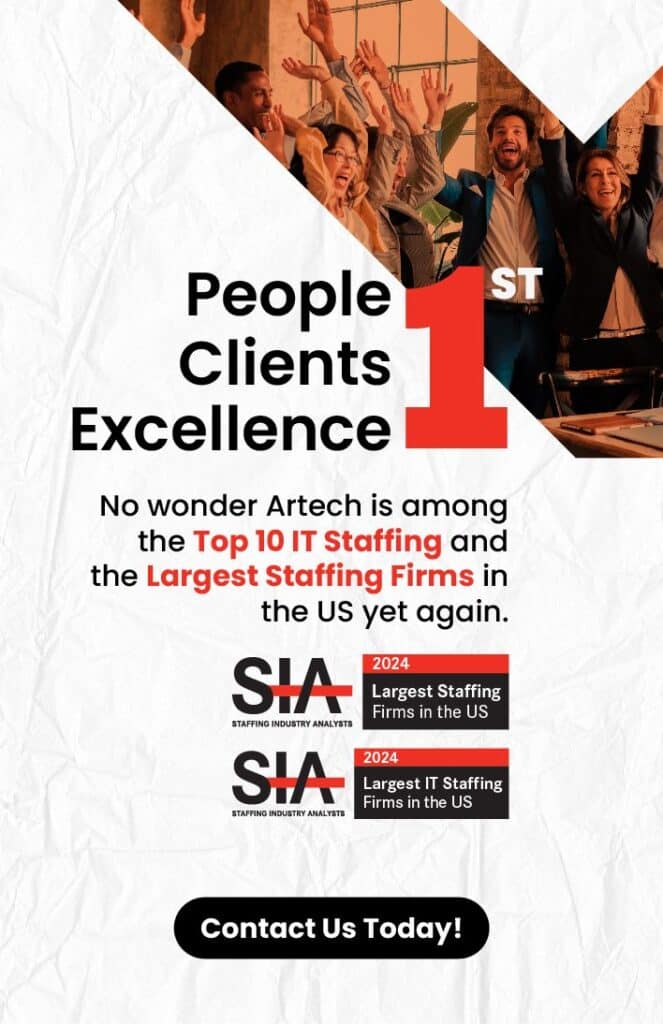
From early interest to real-world frameworks, this consultant’s path shows how Python can power high-impact roles in today’s tech world.
Introduction
The path to becoming a successful software developer is rarely linear. For many, it’s a mix of academic exploration, practical curiosity, and a willingness to build things that matter. In today’s fast-evolving FinTech sector, Python has emerged as a go-to language for everything from automating pipelines to designing scalable frameworks. In this blog, we feature the real-world journey of one such consultant—how they discovered their passion for programming, transitioned through education and early roles, and carved out a fulfilling tech career in the U.S.
(Note: For confidentiality, we’ve kept the consultant’s identity anonymous.)
Q: What first got you interested in software development—and eventually, Python?
It started back in school with C and C++. That initial exposure made coding feel intuitive and enjoyable. I eventually pursued a degree in computer science, which gave me the foundation I needed. When I moved to the U.S. for my Master’s in Databases and Software Engineering, I explored more languages and tools — and that’s when Python stood out. It was flexible, readable, and widely used in both data and web development.
Q: Did you have any work experience before your Master’s program?
Just a short internship in India. Most of my hands-on learning took place during and after my time in graduate school.
Q: What motivated your decision to pursue a Master’s in the U.S.?
It was a long-term plan. During my engineering studies in India, I had already begun researching programs abroad. When I got accepted into a well-ranked U.S. university, it felt like the right move to expand my skills and career potential.
Q: How has your career grown since the Master’s?
I began my professional journey in 2017. In the early years, my focus was primarily development—writing backend logic, building features, and fixing bugs. Over time, my responsibilities expanded. Now I’m involved in testing, peer reviews, improving internal frameworks, and handling migrations. It’s a healthy mix of writing code and collaborating with others.
Q: What does a typical workday look like for you?
It includes Python scripting, writing and maintaining ETL pipelines and processes, debugging, and reviewing code. A large part of the day is also spent aligning with the team, either through stand-ups or asynchronous communication on Slack. We often brainstorm how to improve our internal tools and frameworks or tackle tricky bugs together.
Q: Tell us more about the internal framework project.
We’re migrating from a functional programming setup to an object-oriented model. That change makes the framework more readable and easier to scale or maintain. My role involved refactoring major parts of the codebase and implementing key features aligned with new business KPIs. Every improvement is reviewed carefully to make sure it integrates cleanly.
Q: You mentioned an ETL pipeline migration. What was that experience like?
We transitioned from an on-premise setup to a cloud-based framework. This was a significant change, particularly in terms of automation and maintainability. I wrote new scripts to automate the data flow and ensured the documentation was comprehensive. It resulted in better team efficiency, easier debugging, and more cost control for the business.
Q: How did you validate the success of that migration?
We began with a simple dataset and ran it through the new pipeline five times to make sure the results were consistent. We also built dashboards to visualize error patterns and tracked daily success metrics. That feedback loop enabled us to iterate quickly and identify edge cases early.
Q: What role does testing play in your development work?
Testing is crucial. We use unit tests, integration tests, and behavioral tests that model real-world scenarios. Behavioral tests are especially useful—they’re readable and mirror business logic. Recently, I’ve been using GitHub Copilot to generate unit tests. It’s great and yet to be perfect, but it significantly speeds up the workflow.
Q: What tools or platforms do you rely on to stay productive?
Stack Overflow is still a go-to. I also spend time on LeetCode for algorithmic thinking and sometimes use HackerRank to practice. When learning a new Python library, I always read the official docs and then experiment with real code on staging environments.
Q: Have you pursued any certifications or formal learning programs?
Yes. I used Cloud Guru to prepare for the AWS Certified Developer Associate exam. For other topics, I’ve taken focused courses on Coursera or YouTube. My rule of thumb is to look for short, specific content when I need it most.
Q: Looking back, what helped you grow the most in your current role?
Being curious and not hesitating to ask questions. I always try to research first, but I’m comfortable reaching out when stuck. It also helps to be open to learning new tools or adjusting to new workflows as the tech evolves.
Q: What advice would you give to job seekers aiming for Python roles?
Begin with core concepts, including data structures, algorithms, and Python syntax. Use LeetCode or HackerRank to practice. Work on open-source or personal projects to gain real-world experience. And don’t underestimate documentation—most answers are hidden in plain sight. Certifications help, but practical experience speaks louder.
Q: Are there any specific locations in the U.S. where you see a higher demand for Python developers?
Definitely. The Bay Area and New York have many roles, but they’re competitive and expensive. Cities like Dallas, Atlanta, and even Austin offer strong opportunities with a more balanced cost of living.
Q: Do you participate in any tech communities or meetups?
Not regularly, but I see the value. Communities are great for networking and learning, especially if you’re just starting out or looking for mentorship.
Q: What are your final thoughts or lessons for someone just beginning this path?
Stay flexible. Be open to relocating to new cities, learning new tools, and adapting to evolving team structures. Most importantly, keep building. Curiosity will take you far—as long as you keep applying it.
Conclusion
This story isn’t just about mastering a language—it’s about building a mindset. From school projects to full-scale cloud migrations, this consultant’s journey is proof that the right mix of curiosity, discipline, and adaptability can unlock massive opportunities. If you’re looking to grow your career in tech, Python could be your launchpad too.
Explore FinTech Roles Built for You
Whether you’re just starting with Python or looking to transition into FinTech, there’s no better time to take that next step. At Artech, we pair consultants with meaningful roles that align with their skills, goals, and potential.
This content is crafted with care by Artech Staff Authors. While it reflects our commitment to quality and accuracy, please note that it is not authored by industry experts. We aim to offer valuable and engaging information, and for more specialized or technical advice, we recommend consulting with professionals in the relevant field. If you have any concerns or require further assistance, please contact us at support@artech.com. Thank you for trusting Artech as your source of informative content.








